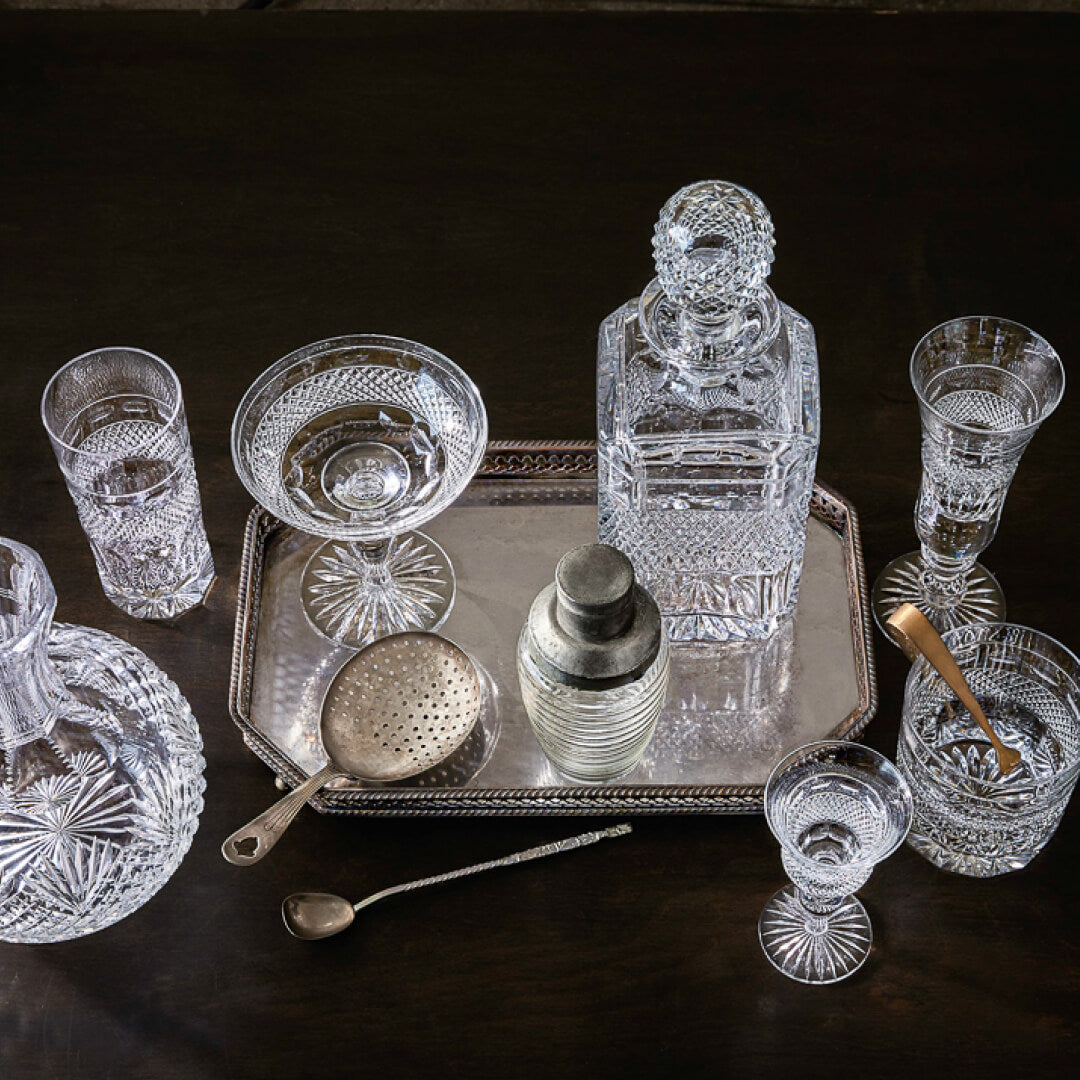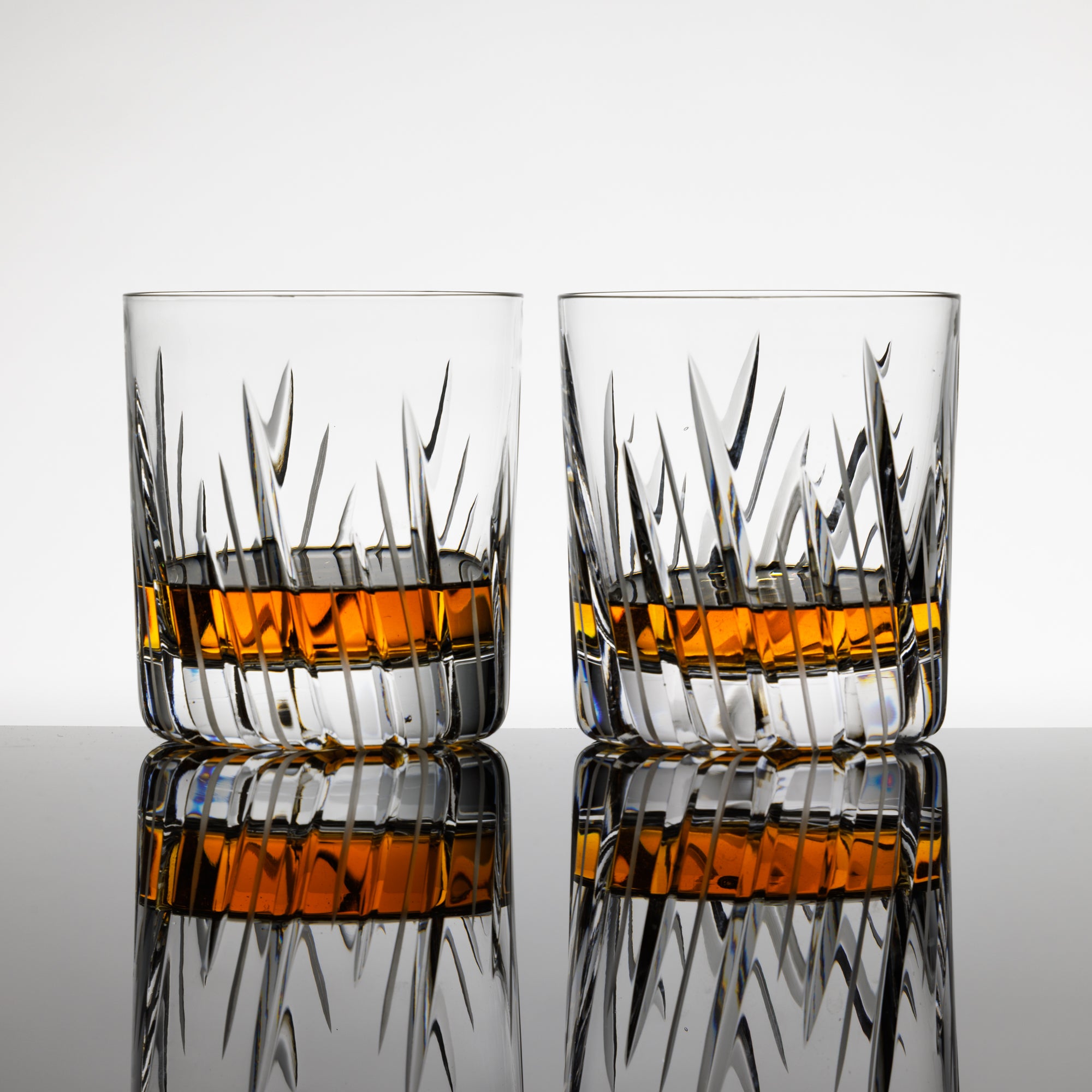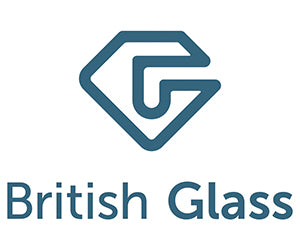Crystal Care
Caring for your lead crystal
- We recommend individually hand washing your crystal with warm water, a soft sponge and mild detergent as soon as possible after use.
- Scouring pads, or course brushes can scratch your crystal.
- Avoid sudden water temperature variations, ie. hot to cold, or vice versa, as this can crack your crystal.
- For ease of cleaning avoid allowing residue deposits to dry on your crystal. If this is not possible quickly rinse or, even better, leave items filled with water overnight.
- After washing & rinsing in warm/hot water allow your crystal to stand upside down, if possible, on kitchen paper or a soft towel to dry naturally.
- Prior to storing a final polish with a microfibre cloth will ensure your crystal looks its best next time it is used.
- When drying or polishing stemware avoid holding the glass by the foot, or low on the stem.
- Instead, hold the bowl of the glass gently in your palm while drying the glass.
- Keep your thumb on the outside of the bowl to minimise pressure. A twisting action will exert additional stress on the rim, or joint of the bowl and stem, which are the most vulnerable points of the crystal.
- Microfibre cloths are by far the best way to dry and polish crystal. Its superior cleaning ability means very little pressure is needed as the cloth almost grips the glass. Be careful not to accidentally apply too much pressure.
Limescale:
- In hard-water areas limescale build can build on surfaces dulling the sparkle of your crystal. This can be avoided by timely cleaning & polishing after use.
- This may not be practical for some products, ie. vases. In this case, ensure the water is topped up daily & the glass cleaned regularly. Limescale marks can be removed using a solution of powdered citric acid, dissolved in warm water. Rinse thoroughly before use. It can also be used in a dishwasher.
Storage:
- Do not store your crystal glasses upside-down unless the rim is on a soft cloth.
- If stored upright, ensure your glasses do not touch each other.
- The rim of the glass is delicate and can chip if knocked. Should this happen Cumbria Crystal offers a rim repair service.
Dishwashers:
- Dishwashers use powerful detergents which, over time, strip ions from the glass surface creating an opaque bloom that cannot be removed.
- No glass or crystal is truly dishwasher safe. Some are better than others at resisting the corrosive effects of dishwasher detergent, but all will eventually deteriorate.
- If you use a dishwasher, we suggest a separate crystal wash on a 4O°C gentle cycle, without detergent, or using a gentle-care dishwasher tablet.
Decanters:
- Should be washed in warm water with a soft sponge and no detergent.
- You should avoid leaving wine in decanters and rinse them immediately with clean water after use. When empty, initially store without the stopper to allow for proper airing.
- To absorb moisture after washing insert a long strand of absorbent kitchen paper for about 10 hours. If misting occurs, use citric acid dissolved in warm water. Shake vigorously and rinse.
Candlestick Holders:
- Do not stick wax candles into the holders with melted wax. Use non-drip candles. If the wax gets onto the candlestick holders, gently wipe it away by using lukewarm water or methylated spirits.
- Avoid allowing the candles to burn down entirely will cause the crystal to crack.
Repair Service
Cumbria Crystal offers a full repair service which includes regrinding, edge-melting & much more, with prices starting at £20.00 (incl. VAT). For enquiries, please email shop@cumbriacrystal.com.
What is full lead crystal?
Developed in 1676 by English glassmaker George Ravenscroft, full lead crystal has at least 24% lead oxide in its composition. This produced a more brilliant, sparkling glass with a higher refractive index than had ever been previously imagined and which, to this day, is unsurpassed.
The high lead content makes the crystal denser and softer than normal glass. This higher density produces the sparkle and reassuring weight whilst the softness allows for sharper facets enabling the sparkling prisms when cut which refract the light, resulting in exceptional colour and brilliance.
English Full Lead Crystal is the epitome of luxury. Its brilliant sparkle belies its reassuring weight and heft in the hand. As an English invention from the 17th Century, the very best crystal continues to be hand made in England at Cumbria Crystal in the 21st Century.
Concerns over lead crystal
Lead Crystal wine glasses, decanters and spirt glasses do not generally pose a significant health risk provided:
- Items are thoroughly washed after use.
- Wines and spirits are not stored for extended periods in lead crystal decanters.






